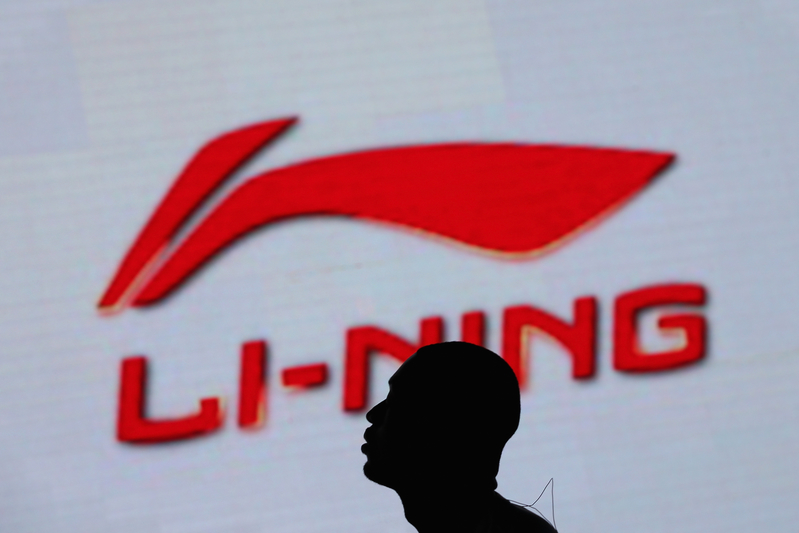[Epoch Times, October 20, 2022](Epoch Times reporter Li Jing comprehensive report) Li Ning, a Chinese sportswear brand, recently held a new product launch conference. The appearance and color matching of a series of winter clothing are accused of being similar to “Japanese military uniforms”. And involved in the “insulting China” public opinion storm. Despite Li Ning’s apology, the company’s stock price continued to fall.
Li Ning released new clothing designs for autumn and winter at the end of September. One of them was an army green jacket with two “drape cloths” on both sides of the hat, which was criticized by Chinese netizens for being very similar to the Japanese military uniforms of World War II. The brand was once again caught in the controversy of “humiliating China”, and many netizens criticized it on the Internet, “I take Li Ning as a domestic product, and Li Ning takes me as a chief officer.”
On the morning of the 19th, Li Ning issued a statement on the official Weibo to apologize. The statement said that recently, there has been a discussion on the Internet about some products of the “Dream Walk” show, and Li Ning is highly concerned about this. We sincerely apologize for the confusion and doubts caused by the design and shape of related products. Li Ning explained that the controversial “flying cap” was designed from ancient Chinese helmets, outdoor protective caps and cotton caps.
On the same day, Hu Xijin, the former editor-in-chief of the Communist Party’s official media Global Times, posted on Weibo, “I don’t believe that Li Ning is deliberately imitating Japanese military uniforms. Such motives are too crazy. It is a commercial suicide. It is easy to generate relevant associations when people say this style of clothing.”
Hu Xijin also said: “Because once a certain impression is formed in the public opinion field, it is difficult to eliminate. The loss of stopping the sale of that clothing should be much smaller than the loss of the dispute caused by the defense and explanation.”
However, mainland social media commented that the “humiliating China” storm about Li Ning’s clothing has not stopped.
Some netizens wrote, “Li Ning has several official Weibo. Li Ning will either not respond to this matter, or respond positively through the official Weibo! Li Ning E-commerce General Manager Feng Ye and Executive Director Li Qilin (Li Ning’s nephew), What’s the matter with such a response?”
There are also comments: “I always thought that Li Ning was the light of domestic products. It turned out that the top management was a small Japan, and I couldn’t accept it at a psychological level. Let’s buy other domestic products.”
After Li Ning Company issued an apology statement, the stock price of Li Ning continued to decline at the opening on the 19th, down 6.45% throughout the day to close at HK$52.95 per share, with a total market value of HK$138.8 billion, or about RMB 127.7 billion. According to the “21st Century Business Review”, Li Ning, who has always shown itself as a “national brand”, evaporated 12.3 billion yuan in three trading days.
Li Ning’s new product is suspected to be a Japanese grandmaster. Does the designer not consider our national feelings? You big traitor, broke our little pink glass hearts, we won’t buy your products again, hum! pic.twitter.com/wu11JNC6XV
— Fei Fei 4.0 (@meimei1935) October 18, 2022
It is not surprising that Li Ning, who has always been regarded as a “national enterprise” and a “domestic fashion brand” by the CCP’s official media, suddenly fell into a storm of “insulting China’s brand”. In recent years, instigated by the CCP’s propaganda, nationalism has been on the rise, and there have been more and more controversial incidents involving “humiliating China” and “Jingri”.
Notably, Swedish clothing maker H&M, which was boycotted in China last year, issued a statement expressing concerns about reports of slave labor in Xinjiang. Following H&M, international sporting goods giants Nike, Adidas and other European and American brands have become the next targets. Under the pressure of the CCP’s public opinion, many mainland artists issued a statement terminating their cooperation with brands such as Nike.
At the same time, the CCP’s official media has promoted high-profile domestic brands such as Li Ning, and these domestic brands have also made a lot of profits with the official support.
Responsible editor: Li Qiong#
